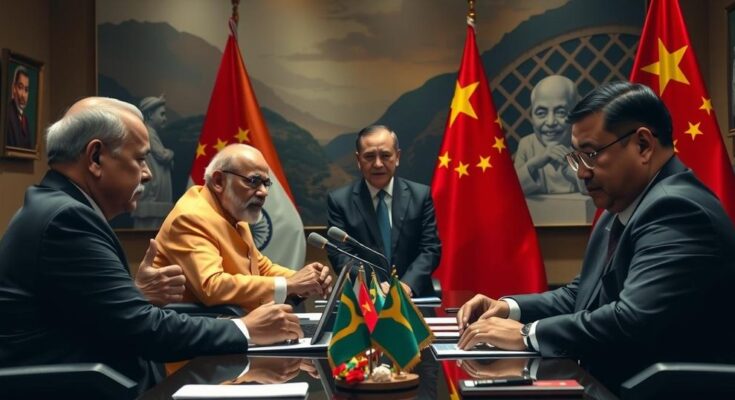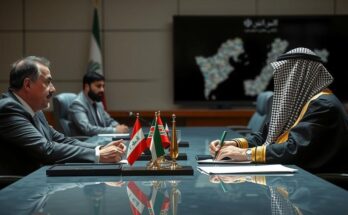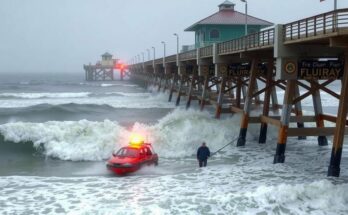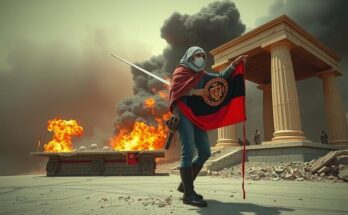During the BRICS summit in Kazan, Russia, leaders from India, China, and South Africa reaffirmed their support for President Vladimir Putin, particularly emphasizing the need for a peaceful resolution to the Ukraine conflict. Prime Minister Narendra Modi highlighted the importance of dialogue, while Xi Jinping praised the strong ties between China and Russia. South African President Cyril Ramaphosa echoed calls for an end to the conflict, reflecting a united front among the BRICS nations amid ongoing geopolitical tensions.
At the BRICS summit held in Kazan, Russia, leaders from India, China, and South Africa congregated to extend their support to President Vladimir Putin amid ongoing geopolitical tensions. Prime Minister Narendra Modi of India urged a swift resolution to the conflict in Ukraine, emphasizing the importance of peaceful negotiations. Meanwhile, Chinese leader Xi Jinping highlighted China’s deep-seated friendship with Russia, asserting that their relations have contributed significantly to the development of both nations. Modi has been balancing support for Ukraine while maintaining ties with Moscow, taking on the role of a potential peacemaker. In a show of solidarity, South African President Cyril Ramaphosa echoed the sentiments for concluding the conflict, reaffirming Russia’s longstanding friendship with South Africa, dating back to the struggle against apartheid. Amidst strong security measures, this summit aims to demonstrate Russia’s resilience against Western isolation, showcasing its alliances in a purportedly multipolar world.
The BRICS group, consisting of Brazil, Russia, India, China, and South Africa, was established to promote economic cooperation and political dialogue among its members. The organization has been seen as a counterweight to Western influence, particularly in the wake of Russia’s military actions in Ukraine. The recent summits have gained increased scrutiny as Western nations express concern over the potential for these meetings to bolster Russia’s geopolitical standing. This particular summit comes at a critical juncture as it is the largest international engagement Russia has hosted since the onset of the Ukraine conflict in 2022, signaling a determined effort by Moscow to project its narrative of global partnership despite sanctions and international scrutiny. Tensions between allies, such as India and China, also highlight the complexities within BRICS, as each nation navigates its own foreign relations amid growing divisions in the global order.
The BRICS summit in Kazan serves not only as a platform for demonstrating international solidarity with Russia but also highlights the intricate dynamics of global geopolitics. The statements from leaders Modi, Xi, and Ramaphosa reflect a commitment to fostering dialogue and peace amidst conflict while emphasizing their nations’ respective alliances. Furthermore, the meeting underscores Russia’s aspirations to redefine its global partnerships in a multipolar context, challenging the dominance of Western powers, albeit amid internal tensions within the BRICS coalition. As global leaders continue to address the conflict in Ukraine, the positions taken at this summit will inform not only future diplomatic relations but also the overarching stability of the international order.
Original Source: www.courthousenews.com




